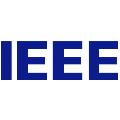Variational inference often minimizes the "reverse" Kullbeck-Leibler (KL) KL(q||p) from the approximate distribution q to the posterior p. Recent work studies the "forward" KL KL(p||q), which unlike reverse KL does not lead to variational approximations that underestimate uncertainty. This paper introduces Transport Score Climbing (TSC), a method that optimizes KL(p||q) by using Hamiltonian Monte Carlo (HMC) and a novel adaptive transport map. The transport map improves the trajectory of HMC by acting as a change of variable between the latent variable space and a warped space. TSC uses HMC samples to dynamically train the transport map while optimizing KL(p||q). TSC leverages synergies, where better transport maps lead to better HMC sampling, which then leads to better transport maps. We demonstrate TSC on synthetic and real data. We find that TSC achieves competitive performance when training variational autoencoders on large-scale data.
翻译:变式推论往往将“反向” Kullbeck- Leiber (KL) KL(q ⁇ p) 从近似分布 q 到后端 p. 最近的工作研究“前向” KL KL(p ⁇ q),与逆向 KL(p ⁇ q) 不同,它不会导致低估不确定性的变式近似值。本文介绍了运输量攀升(TSC), 这是一种使用汉密尔顿·蒙特卡洛(HMC) 和新颖的适应性运输图来优化 KL(p ⁇ q) 的方法。 运输图改进了HMC的轨迹, 在潜在可变空间和扭曲的空间之间起到变异作用。 TSC 使用 HMC 样本来动态地培训运输图,同时优化 KL(p ⁇ q) 。 TSC 在更好的运输量图导致更好的HMC 采样的情况下, 能够带来更好的运输量地图。 我们在合成数据和真实数据上展示 TSC 。 我们发现, 当对大型数据进行变式自动算器培训时, TSC 具有竞争性性。



